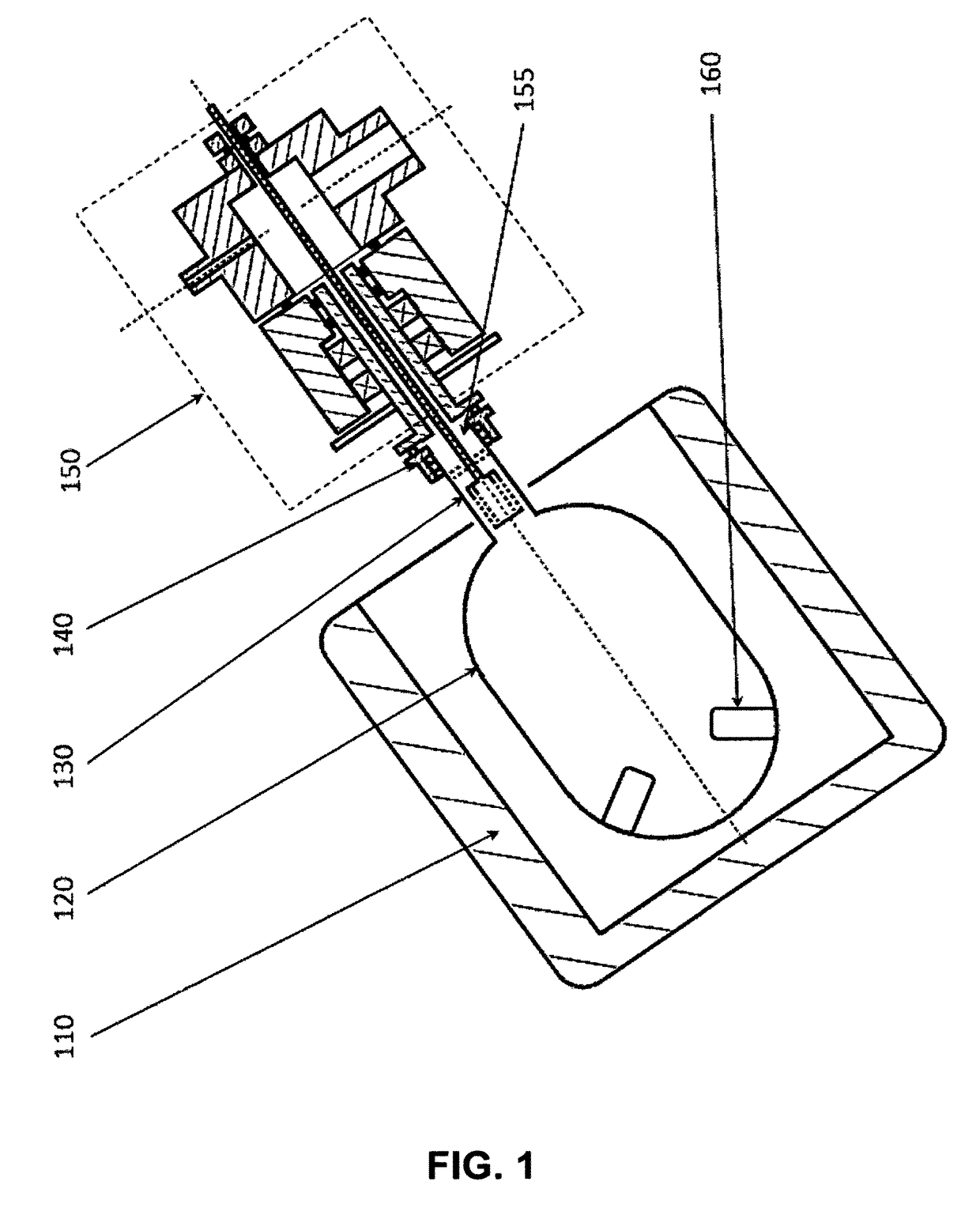Apparatus and method for making atomic layer deposition on fine powders
a technology of atomic layer and fine powder, which is applied in the direction of chemical vapor deposition coating, transporting and packaging, coating, etc., can solve the problems of non-ald depositon, filter blockage, and large waste of carrier gases, so as to improve the agitation of powder and improve the agitation speed. , the effect of rotation speed
- Summary
- Abstract
- Description
- Claims
- Application Information
AI Technical Summary
Benefits of technology
Problems solved by technology
Method used
Image
Examples
Embodiment Construction
[0035]It is to be understood that the appended drawings and the exemplary embodiments hereafter illustrate only typical embodiments of this invention and are therefore not to be considered limiting of its scope, as the invention may admit to other equally effective embodiments.
[0036]In one aspect of the embodiments of this invention, a rotary vessel is used to hold powders, and the powders are agitated by the rotary movement so as to improve the efficacy of “precursor-exposure” and “purge” steps. In addition, instead of relying on using porous filtering to confine the powders within the chamber, mechanism is provided so that the gravity of the powders can be employed to confine the powders within the chamber as gravity tends to pull the powders down to the bottom of the chamber. To facilitate this mechanism and prevent powders from being carried by gas flow and entering the pumping port, the ALD chamber shall be configured in a way so that the opening of the ALD chamber (which is th...
PUM
| Property | Measurement | Unit |
|---|---|---|
| angle | aaaaa | aaaaa |
| angle | aaaaa | aaaaa |
| diameter | aaaaa | aaaaa |
Abstract
Description
Claims
Application Information
 Login to View More
Login to View More - R&D
- Intellectual Property
- Life Sciences
- Materials
- Tech Scout
- Unparalleled Data Quality
- Higher Quality Content
- 60% Fewer Hallucinations
Browse by: Latest US Patents, China's latest patents, Technical Efficacy Thesaurus, Application Domain, Technology Topic, Popular Technical Reports.
© 2025 PatSnap. All rights reserved.Legal|Privacy policy|Modern Slavery Act Transparency Statement|Sitemap|About US| Contact US: help@patsnap.com



